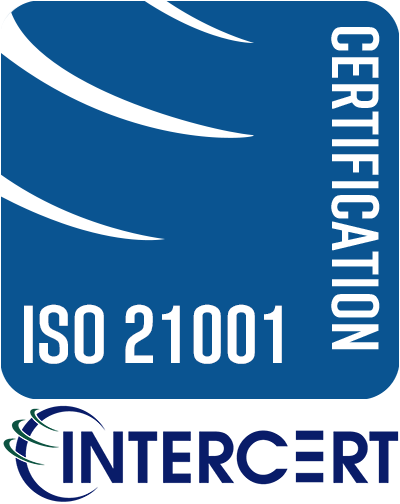06.03.2023.
Verlab#Blog: Merima Smajlhodžić - Deljo
Women have long played an important but frequently unacknowledged role in science, technology, engineering, and mathematics (STEM). While the demand for STEM-skills in the labour market is increasing to meet the green and digital transitions, women are still faced with the risk of missing out on these opportunities due to their underrepresentation in these fields.
Although women make up a large part of the workforce in many fields, they are still underrepresented in scientific disciplines, especially in higher positions. There are many challenges facing women in science, including gender bias, discrimination, lack of mentoring support, difficult work-life balance, and other factors. Empowering women in science can lead to a wider diversity of ideas, perspectives and innovations in science, which could lead to better discoveries and a better understanding of the world we live in.
What’s the History of Women in STEM?
When thinking about STEM one cannot but remember a few women who made monumental achievements strengthening the role of women in STEM. A pioneer premier nature writer sRachel Carson (1907-1964) who compelled people to call for change, igniting an environmental movement that led to the prohibition of the pesticide DDT. For the astronauts to fly in rockets and go to space, Katherine Johnson (1918-2020) helped them get there. Johnson made critically important contributions to the country’s most historical achievements in spaceflight as a well-respected NASA mathematician – a human computer whose calculations helped put American astronauts into space and, ultimately, on the Moon. Marie Curie (1867-1934) followed her curiosity into unknown territories of science, which led to foundational discoveries for modern medicine and industry, by figuring out radioactivity, which is used to make X-rays, kill germs and create electricity.
These, and many more examples are significant evidence that women work quietly behind the scenes to advance technology in STEM professions, so we don't need to talk about women in science only on the International Day of Women and Girls in Science, celebrated on 11 February, we need to empower and motivate young girls to consider studying science or technology, and constantly strengthening the position of women in science. There is an awareness that women scientists and researchers in BiH's academic community have less influence and a lower status than their male colleagues.
Why Focus on Women in STEM?
Science, technology, and innovation (STI) has a significant impact on many parts of our lives, including personal well-being, learning, participation, livelihoods, the environment, and social interactions. The digital infrastructure we develop today will shape our futures for decades, if not centuries, to come. In several of the future professions that will develop the fastest and provide the best wages, such as computer science and engineering, there are disproportionately large gender inequalities. There are several inborn qualities that are gender-neutral but historically manifest more in women, such as strong collaboration, excellent listening skills, effective communication, mediator skills, and the ability to multitask.
Challenges
Despite the fact that there are more girls in school than ever before, they often do not have the same possibilities as boys to complete and benefit from a chosen education. According to the UNESCO Institute for Statistics, women make up little over 35% of STEM-related graduates in higher education. Only 28% of STEM (science, technology, engineering, and maths) jobs are held by women, and men outweigh women in most STEM undergraduate majors. Many female leaders in STEM aspire to work in a setting where they are equally represented to their male colleagues, but as of now, we are still wondering what it will take. According to UNESCO data on research and experimental development (R&D) available from 2019, female researchers make up 46.8% of all researchers in Bosnia and Herzegovina.
Future perspective
Girls and young women should embrace their nature and instincts. To be represented by different voices, we need more girls and young women in STEM fields. We are more compassionate and empathic than man, and I believe these are fantastic qualities that we can use to become better leaders. As someone who continued education outside the borders of Bosnia and Herzegovina, and came back in the midst of the pandemic, I was very disappointed in the institutions in my country, where in that period it was seen how many young female scientists who graduated from faculties related to science, where at the bureau. I was lucky that the opportunity opened up for me to work at the Verlab Institute and to apply my acquired knowledge during my studies at the University of Vienna and previous work as a young scientist at the Austrian Institute for Technology (AIT).
I know girls and young women from my field of education, who struggle with self-esteem and confidence issues, but sometimes, a woman's level of insecurity increases with her level of talent. To build on your confidence, my suggestion is to find a female mentor with whom you can share your concerns and be inspired. MEDICON and CMBEBIH 2023 conference is an opportunity where you can meet your future female mentor.
As a female-lead organisation Verlab Institute fosters a culture of friendliness and collaboration, promoting work-life balance, ensuring women’s full and effective participation and equal opportunities for leadership at all levels of decision-making. Therefore, at the upcoming conference MEDICON and CMBEBiH 2023, in cooperation with IFMBE, a session Women in Biomedical engineering will be organised, which represents a great opportunity for networking and a high-quality discussion about the position of women in the business and academic community in Bosnia and Herzegovina, with a special emphasis on women scientists and researchers in the sector biotechnologies of medicine engineering. Additionally, for young girls and women in clinical engineering there is currently an open call for Women in Clinical Engineering (WICE) stories published by IFMBE, with the aim to share their stories and to celebrate their achievements in the field of clinical engineering and to encourage female students to explore a career in engineering.
Osnaživanje djevojaka i žena u nauci: Izazovi i buduće perspektive
Žene su već dugo igrale važnu, ali često neprepoznatu ulogu u nauci, tehnologiji, inženjerstvu i matematici (STEM). Iako se potražnja za STEM vještinama na tržištu rada povećava kako bi se ispunili zahtjevi za zelenom i digitalnom tranzicijom, žene se i dalje suočavaju sa rizikom propuštanja ovih prilika zbog svoje nedovoljne zastupljenosti u ovim područjima.
Iako žene čine veliki dio radne snage u mnogim područjima, i dalje su nedovoljno zastupljene u naučnim disciplinama, posebno na višim pozicijama. Žene u nauci se susreću sa mnogim izazovima, uključujući spolnu pristranost, diskriminaciju, nedostatak mentorske podrške, tešku ravnotežu između posla i privatnog života i druge faktore. Osnaživanje žena u nauci može dovesti do raznolikosti ideja, perspektiva i inovacija u nauci, što bi moglo dovesti do boljih otkrića i boljeg razumijevanja svijeta u kojem živimo.
Kakva je historija žena u STEM-u?
Kada se govori o STEM-u, ne možemo, a da ne spomenemo nekoliko žena koje su ostvarile monumentalna postignuća jačajući ulogu žena u STEM-u. Rachel Carson (1907-1964) pionirka prirodne pisane riječi koja je natjerala ljude da traže promjene, podstaknuvši ekološki pokret koji je doveo do zabrane pesticida DDT. Katherine Johnson (1918-2020) je pomogla astronautima da lete raketama i odu u svemir. Johnson je kao poštovana matematičarka u NASA-i dala izuzetno važan doprinos u najznačajnijim postignućima u historiji američkog svemirskog programa, a njeni su se izračuni koristili za slanje američkih astronauta u svemir i, konačno, na Mjesec. Marie Curie (1867-1934) je slijedila svoju znatiželju u nepoznata područja nauke, što je dovelo do temeljnih otkrića za modernu medicinu i industriju, otkrivši radioaktivnost, koja se koristi za izradu rendgenskih snimaka, ubijanje bakterija i stvaranje električne energije.
Ovi, i mnogi drugi primjeri, su značajan dokaz da žene rade tiho iza scene kako bi unaprijedile tehnologiju u STEM profesijama, tako da ne trebamo govoriti o ženama u nauci samo na Međunarodni dan žena i djevojaka u nauci, koji se slavi 11. februara, trebamo osnažiti i motivisati mlade djevojke da razmisle o studiranju nauke ili tehnologije, i kontinuirano jačati poziciju žena u nauci. Postoji svijest da žene naučnice i istraživačice u akademskoj zajednici BiH imaju manji utjecaj i niži status od svojih muških kolega.
Zašto se fokusirati na žene u STEM-u?
Nauka, tehnologija i inovacije (STI) imaju značajan utjecaj na mnoge dijelove naših života, uključujući lično blagostanje, učenje, sudjelovanje, izvore za život, okoliš i društvene interakcije. Digitalna infrastruktura koju danas razvijamo oblikovat će našu budućnost u narednim desetljećima, ako ne i stoljećima. U nekoliko budućih profesija koje će se najbrže razvijati i pružati najbolje plate, poput računarstva i inženjerstva, postoje nepravedne rodne nejednakosti. Postoji nekoliko urođenih osobina koje su rodno neutralne, ali koje su se historijski više manifestovale kod žena, poput snažne saradnje, odličnih vještina slušanja, efikasne komunikacije, posredničkih vještina i sposobnosti multitaskinga.
Izazovi
Uprkos činjenici da djevojaka u školi ima više nego ikad prije, često nemaju iste mogućnosti kao dječaci da završe odabranu edukaciju i od nje imaju koristi. Prema UNESCO Institutu za statistiku, žene čine malo više od 35% diplomaca STEM područja u visokom obrazovanju. Samo 28% STEM (nauka, tehnologija, inženjerstvo i matematika) poslova drže žene, a muškarci nadmašuju žene u većini preddiplomskih STEM studija. Mnoge žene lideri u STEM-u žele raditi u okruženju gdje su jednako zastupljene kao i njihove muške kolege, ali za sada se još uvijek pitamo šta će biti potrebno da se to i desi. Prema UNESCO podacima o istraživanju i eksperimentalnom razvoju (R&D) dostupnim iz 2019. godine, žene istraživači čine 46,8% svih istraživača u Bosni i Hercegovini.
Buduća perspektiva
Djevojke i mlade žene trebaju prihvatiti svoju prirodu i instinkte. Da bi se predstavile različitim glasovima, potrebno nam je više djevojaka i mladih žena u STEM područjima. Mi smo suosjećajnije i empatičnije od muškaraca, i vjerujem da su ovo fantastične osobine koje možemo koristiti da postanemo bolje liderke. Kao neko ko je nastavio obrazovanje izvan granica Bosne i Hercegovine, i vratio se usred pandemije, bila sam vrlo razočarana institucijama u mojoj zemlji, gdje se u tom periodu vidjelo koliko je mladih ženskih naučnica koje su diplomirale na fakultetima povezanim s prirodnim naukama, bilo na birou. Imam sreće što mi se otvorila prilika da radim u Verlab Institutu i primijenim svoje stečeno znanje tokom studija na Univerzitetu u Beču i prethodnog rada kao mlada naučnica u austrijskom Institutu za tehnologiju (AIT).
Poznajem djevojke i mlade žene iz mog područja obrazovanja koje se bore sa pitanjima samopouzdanja, ali ponekad se nivo nesigurnosti žene povećava sa njezinim nivoom talenta. Kako bi izgradile svoje samopouzdanje, moj prijedlog je da pronađete ženskog mentora sa kojim možete podijeliti svoje brige i biti inspirisane. MEDICON i CMBEBIH konferencija 2023. godine prilika je da upoznate svoju buduću žensku mentoricu.
Kao organizacija koju predvode žene, Verlab Institut potiče kulturu prijateljstva i saradnje, promoviše ravnotežu između posla i života, osigurava potpuno i učinkovito sudjelovanje žena i jednake mogućnosti za vođenje na svim nivoima odlučivanja. Stoga će se na nadolazećoj konferenciji MEDICON i CMBEBIH 2023, u suradnji sa IFMBE, organizovati sesija Žene u biomedicinskom inženjerstvu, što predstavlja izvrsnu priliku za umrežavanje i visokokvalitetnu raspravu o položaju žena u poslovnoj i akademskoj zajednici u Bosni i Hercegovini, sa posebnim naglaskom na žene naučnice i istraživačice u sektoru biotehnologije medicinskog inženjerstva. Osim toga, za mlade djevojke i žene u kliničkom inženjerstvu trenutno je otvoren poziv za priče “Žene u kliničkom inženjerstvu (WICE)” objavljen od strane IFMBE, s ciljem dijeljenja njihovih priča i slavljenja njihovih dostignuća u području kliničkog inženjerstva te poticanja ženskih studenata da istraže karijeru u inženjerstvu.













